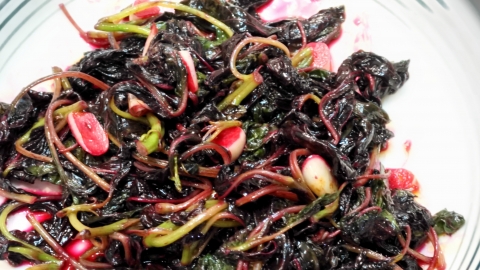Can soft-shelled turtles be eaten with amaranth?
Generally speaking, soft-shelled turtle and amaranth can be consumed together, but it is important to maintain moderation and avoid excessive intake that may lead to adverse bodily reactions. Detailed analysis is as follows:

Both soft-shelled turtle and amaranth are nutrient-rich ingredients. Soft-shelled turtle is rich in protein, various vitamins, and minerals, while amaranth contains abundant dietary fiber, iron, and vitamin C. When consumed in appropriate amounts together, they can supply various nutrients necessary for the body, enhance physical condition, and promote health.
However, both foods are considered cooling in nature, and consuming them together may intensify internal coldness. This may particularly cause gastrointestinal discomfort, such as abdominal pain and bloating, in individuals with weak spleen and stomach functions. Moreover, excessive consumption of amaranth and soft-shelled turtle may overwhelm the kidneys' ability to promptly eliminate excess calcium oxalate, potentially leading to elevated kidney function indicators such as serum creatinine and blood urea nitrogen, which may affect overall health.
In daily diet, balanced intake of various foods and attention to food combinations are essential to better meet the body's nutritional needs and promote health.





